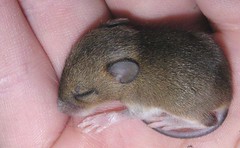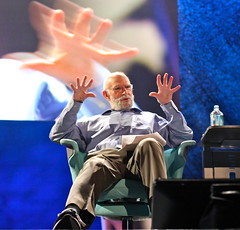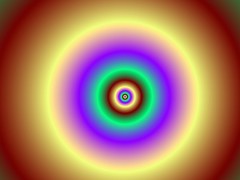AP Psychology Ch. 7
Terms : Hide Images [1]
| our awareness of ourselves and our environment |  | |
| periodic physiological fluctuations |  | |
| the daily biological rhythms that occur in a 24-hour period |  | |
| a stage of sleep characterized by rapid eye movements and a high level of brain activity |  | |
| the relatively slow brain waves of a relaxed, awake state |  | |
| periodic, natural, reversible loss of consciousness |  | |
| false sensory experiences, such as seeing something in the absence of an external visual stimulus |  | |
| the large, slow brain waves associated with deep sleep |  | |
| recurring problems in falling or staying asleep |  | |
| a disorder characterized by sudden sleep attacks, often at inopportune times |  | |
| a sleep disorder characterized by high arousal and an appearance of being terrified, seldom remembered and in stage 4 |  | |
| hallucinations of sleeping mind, sequence of images, emotions, and thoughts of sleeping person |  | |
| according to Freud, the remembered story line of a dream |  | |
| according to Freud, the underlying meaning of a dream |  | |
| the tendency for REM sleep to increase following REM sleep deprivation | ||
| a social interaction in which one person suggests to another that certain perceptions, feelings, thoughts, or behaviors will spontaneously occur |  | |
| a hypnotic effect that involves recalling or reenacting your childhood |  | |
| a suggestion, made during a hypnosis session, to be carried out after the subject is no longer hypnotized | ||
| a split in consciousness, which allows some thoughts and behaviors to occur simultaneously with others |  | |
| Hilgard's term describing a hypnotized subject's awareness of experiences such as pain that go unreported during hypnosis |  | |
| a chemical substance that alters perceptions and mood |  | |
| a state in which a drug user needs larger and larger amounts of the drug to get the same effect | ||
| The discomfort and distress that follow discontinuing the use of an addictive drug. |  | |
| A physiological need for a drug, marked by unpleasant withdrawal symptoms when the drug is discontinued. |  | |
| A psychological need to use a drug, such as to relieve negative emotions |  | |
| drugs (such as alcohol, barbiturates, and opiates) that reduce neural activity and slow body functions |  | |
| drugs that depress the activity of the CNS, reducing anxiety but impairing memory and judgement |  | |
| opium and its derivatives, such as morphine and heroin; they depress neural activity, temporarily lessening pain and anxiety |  | |
| drugs (such as caffeine, nicotine, and the more powerful amphetamines, cocaine, and Ecstasy) that excite neural activity and speed up body functions |  | |
| drugs that stimulate neural activity, causing speeded-up body functions and associated energy and mood changes | ||
| a powerfully addictive drug that stimulates the central nervous system, with speeded-up body functions and associated energy and mood changes; over time, appears to reduce baseline dopamine levels | ||
| synthetic stimulant and mild hallucinogen that produces euphoria and social intimacy with short term health risks and long term damage to mood and cognition | ||
| distort perceptions and evoke sensory images in the absence of sensory output |  | |
| A powerful hallucinogenic drug; also known as acid (lysergic acid diethylamide). |  | |
| major active ingredient in marijuana; triggers a variety of effects, including mild hallucinations |  | |
| an altered state of consciousness reported after a close brush with death |  | |
| the presumption that mind and body are two distinct entities that interact |  | |
| the presumption that mind and body are different aspects of the same thing |  |
